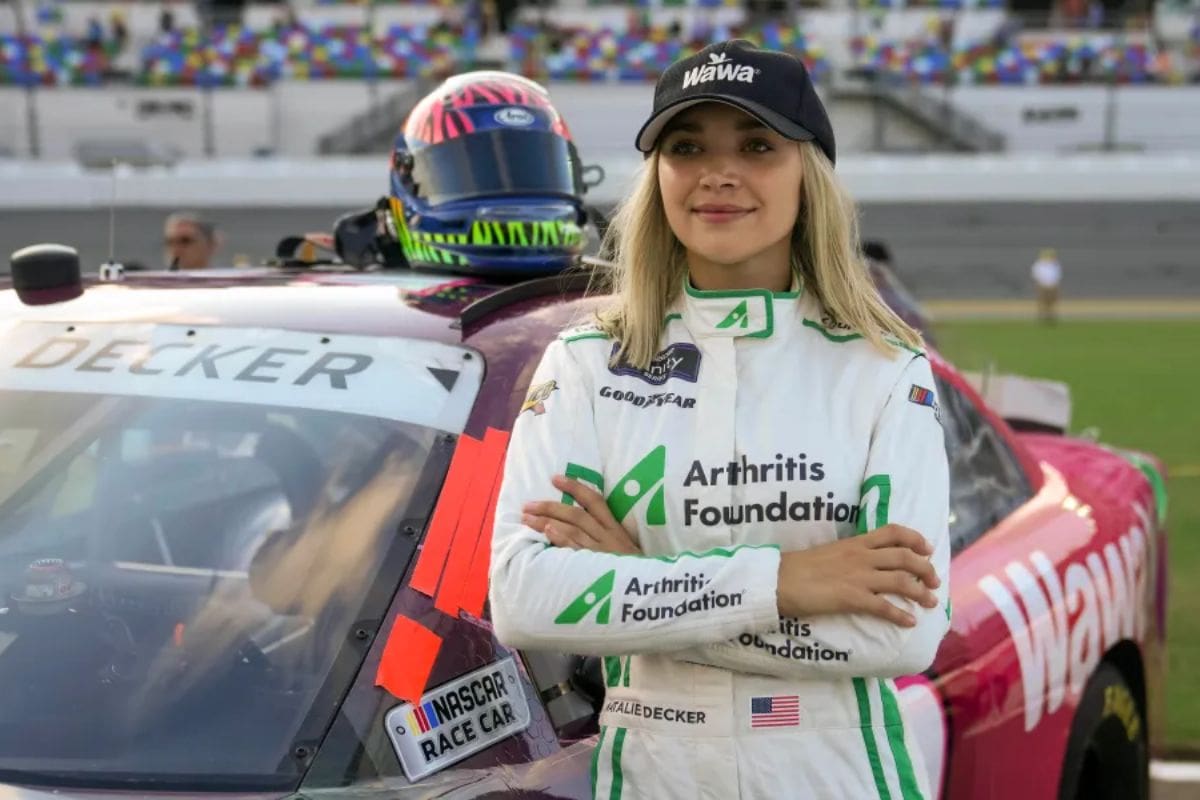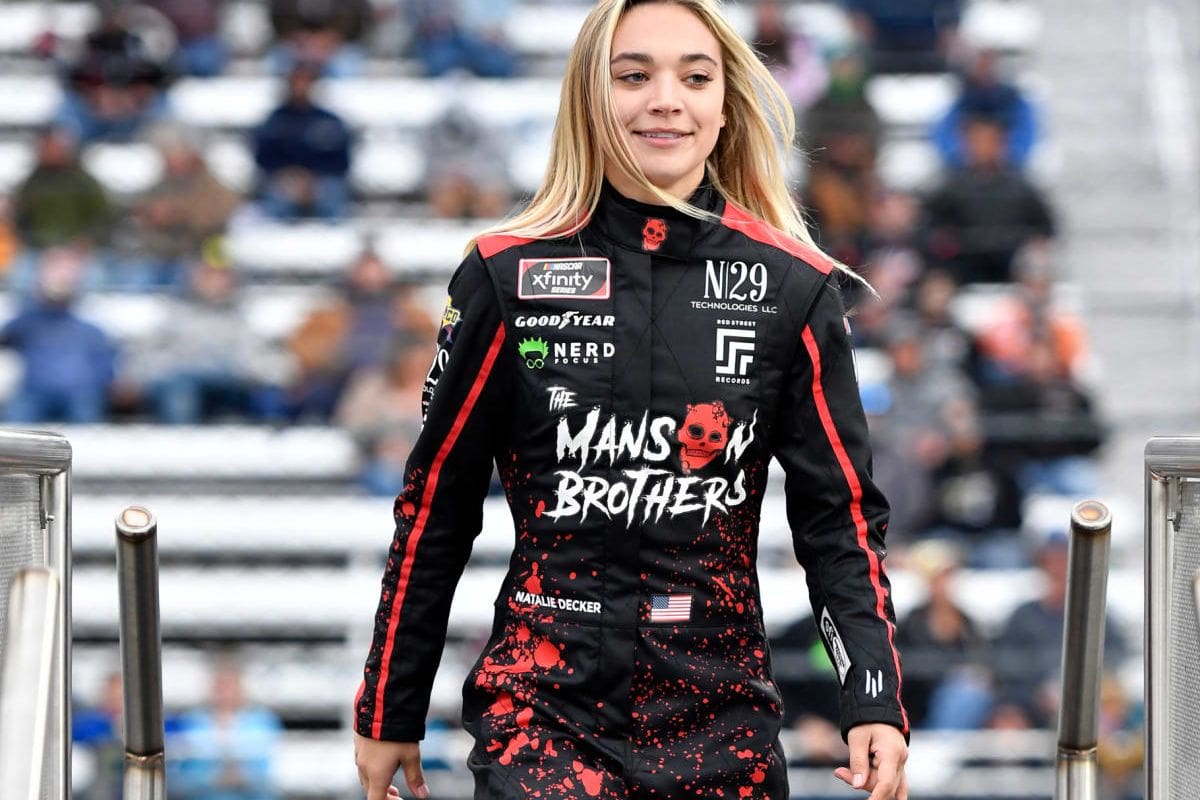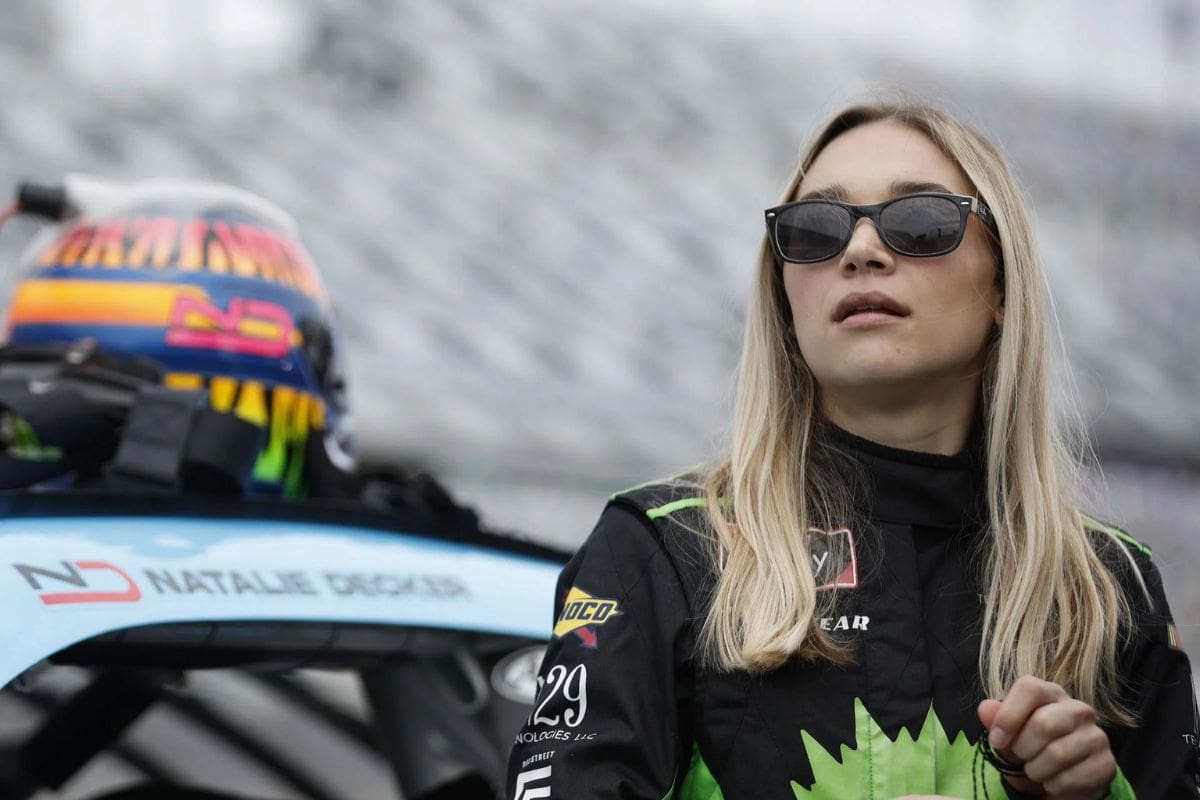Natalie Decker Confronts Alleged Misogyny: Natalie Decker’s recent rebuttal to misogynistic remarks on her Instagram post highlights a critical issue facing women in male-dominated industries, such as motorsports. Her bold response not only defends her dignity but also serves as a broader call to action for men to model respectful behavior. This incident has sparked significant dialogue among her followers, drawing attention to the pervasive gender biases that persist in digital forums and professional spheres as well. As Decker navigates the challenges of a part-time driver in the Xfinity Series, her advocacy against online harassment adds another dimension to her multifaceted path.
Key Highlights
- Natalie Decker addressed a misogynistic comment on her Memorial Day Instagram post.
- She challenged the disrespectful treatment of women online, especially in male-dominated fields like motorsports.
- Decker emphasized the importance of men setting positive examples for their daughters.
- Her response received widespread support from her followers.
- The incident highlighted the broader issue of gender biases in motorsports.
Natalie Decker Stands Up Against Misogyny on Social Media
In a powerful act of defiance, NASCAR driver Natalie Decker directly addressed a misogynistic comment on her Memorial Day Instagram post, challenging the pervasive disrespect women face online. Decker, who often participates in the Xfinity Series with DGM Racing, posted a heartfelt tribute honoring the US Army and its soldiers. However, the occasion took an unexpected turn when a user insinuated that her role was confined to the racetrack.
Decker’s response was both measured and impactful, highlighting the need for respectful treatment of women. She articulated a broader societal issue, stressing that men must set positive examples for their daughters by treating women with dignity. Her stance resonated deeply with her followers, who rallied in support, indicating a collective acknowledgment of the issue at hand.
I hope all you girl dads out there start treating women how you hope your daughter gets treated… pic.twitter.com/o8JsnBUUsz
— Natalie Decker (@NatalieRacing) May 28, 2024
This incident is shows of the broader challenges women face in male-dominated fields like motorsports. Decker’s dignified response not only deflected the negative comment but also turned it into an opportunity for advocacy. By addressing the misogynistic undertone directly, she brought attention to the importance of gender respect and equality, both online and offline.
Decker Returns to Xfinity Series Amidst Challenges
Returning to the Xfinity Series at Charlotte Motor Speedway, Natalie Decker faced substantial challenges in her initial race since the season opener at Daytona. Piloting the No. 92 car for the very first time, Decker encountered difficulties with vehicle control, a crucial factor that emphasized the demanding nature of Charlotte’s track. Despite her best efforts, Decker finished 29th, reflecting the steep learning curve and competitive environment of the series.
“I am struggling!! I haven’t been in the seat in FOREVER and this is a very challenging track. I am just getting so frustrated with myself.” – decker
The shift back to racing after a hiatus inherently involves overcoming both physical and mental hurdles. Decker’s honest admission of the track’s complexity and the car’s handling issues highlights a key aspect of motorsport: adaptability. Racing at Charlotte, known for its high speeds and technical sections, requires precise driving and a deep understanding of the car’s dynamics.
View this post on Instagram
Her crew chief, Bryan Berry, played a crucial role in maneuvering these challenges. Berry’s encouragement and strategic guidance were vital, providing Decker with the support needed to persevere through the race. This collaboration emphasizes the importance of the driver-crew chief relationship in motorsport, where effective communication and mutual trust can significantly impact performance.
Decker’s experience at Charlotte also draws attention to the broader disparaties between part-time and full-time drivers. The limited track time and varying competitive exposure that part-time drivers face often compound the challenges encountered during races. While her 29th place finish might not reflect a triumphant return, Decker’s resilience and fortitude in confronting these obstacles provide an interesting narrative in her racing career.
Challenges of a Part-Time Driver
Competing in the Xfinity Series as a part-time driver, Natalie Decker encounters inherent disparitie in track time and competitive consistency that greatly influence her performance against full-time counterparts. The limited seat time impedes her ability to gather important on-track experience, which is a critical aspect of refining driving skills and strategy. As Decker frankly expressed, the intermittent nature of her racing schedule places her at a marked disadvantage. Full-time drivers benefit from continuous exposure, enabling them to build a rhythm and a deeper understanding of the car’s behavior under varying conditions.
“Do you want to talk about how difficult it is to be a part-time driver? Because I’m racing against all of these drivers that are in and out of the car, every single weekend. They have made more laps this year in the Xfinity Series than I have made in my entire life racing in the Xfinity Series. So it’s really difficult, getting in and getting up to speed and doing what I know what I’m capable of doing.” – decker
Extensive track time allows full-time drivers to fine-tune their skills, while part-time drivers struggle to maintain the same level of competitive edge. The sporadic participation restricts Decker’s ability to cultivate a consistent performance, impacting her confidence and competitive standing.
Decker’s situation exemplifies the broader issue faced by many part-time drivers who aspire to compete at the highest levels but are hindered by structural limitations. This critical analysis elucidates the need for reforms that can bridge the gap between part-time and full-time competitors, fostering a more inclusive and competitive racing environment.
Decker’s Determination Amidst Adversity
Despite the structural challenges faced as a part-time driver, Natalie Decker’s steadfast resolve to succeed in the Xfinity Series exemplifies her resilience in confronting both on-track adversities and social media misogyny. Decker’s path in NASCAR is marked by a tenacious spirit that refuses to bow to the dual demands of performance expectations and online harassment. This resolve, coupled with her willingness to address the disparaging comments she receives, highlights a significant aspect of her character: fortitude.
Analyzing Decker’s approach reveals a multifaceted strategy. On one hand, she focuses on optimizing her limited track time, ensuring that each race supplements her skills and experience. This meticulous preparation is crucial in a highly competitive environment where part-time drivers often lack the consistent seat time of their full-time counterparts.
On the other hand, Decker actively engages with her audience on social media, not shying away from confronting misogynistic remarks. Her open discussions about the challenges she faces help to demystify the adversities female drivers encounter, both within the sport and in the broader context of societal norms.
Furthermore, Decker’s resilience is not merely a personal trait but a broader statement about the evolving landscape of motorsports. Her persistence in the face of adversity serves as an inspiration for aspiring female racers.
News in Brief: Natalie Decker Confronts Alleged Misogyny
Decker’s recent confrontation with misogyny on social media underscores her resolve to combat gender biases in male-dominated fields such as motorsports. By addressing disrespectful behavior, Decker not only defends her own dignity but also advocates for broader societal change, emphasizing the role of men in fostering a respectful environment.
This incident highlights the persistent challenges women face online and in professional arenas, reinforcing the need for continued advocacy and awareness to address gender inequities.
Our Reader’s Queries
Q. Does Natalie Decker have arthritis?
A. Natalie Decker exemplifies resilience as a Chronic Strength Champion, demonstrating her determination not only to manage her pain but to confront it head-on. Natalie’s unwavering drive propels her to triumph over rheumatoid arthritis.
Q. How long has Natalie Decker been racing?
A. At 26 years old, Natalie Decker has dedicated 14 years to her motorsports aspirations. Beginning her journey in go-karts, the native of Eagle River, Wisconsin, drew inspiration from her racing family. “I grew up in a racing family,” shared Decker, reflecting on her career path.
ALSO READ: Natalie Decker’s Adopting Hamlin’s Attitude: Bold Move Ahead



